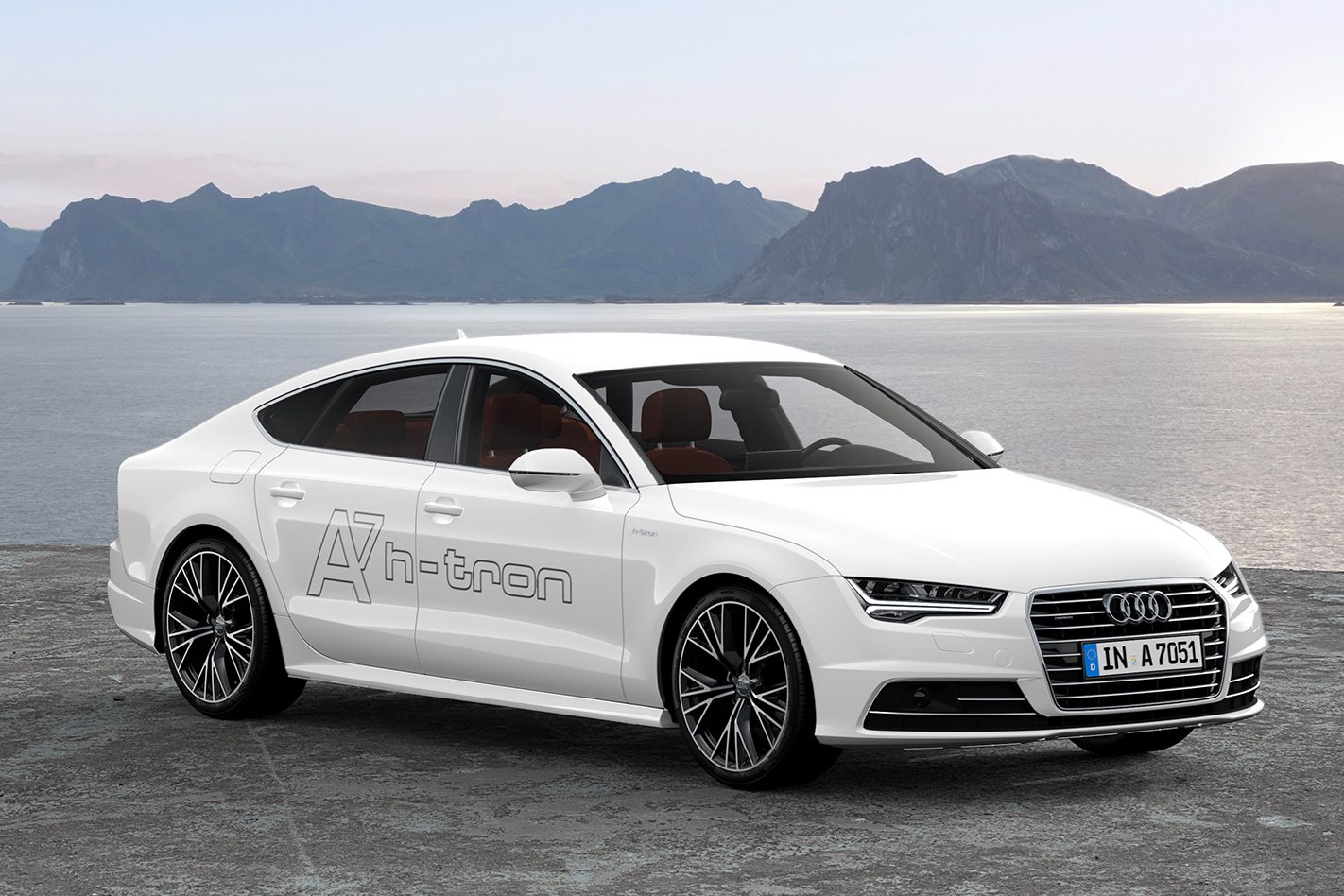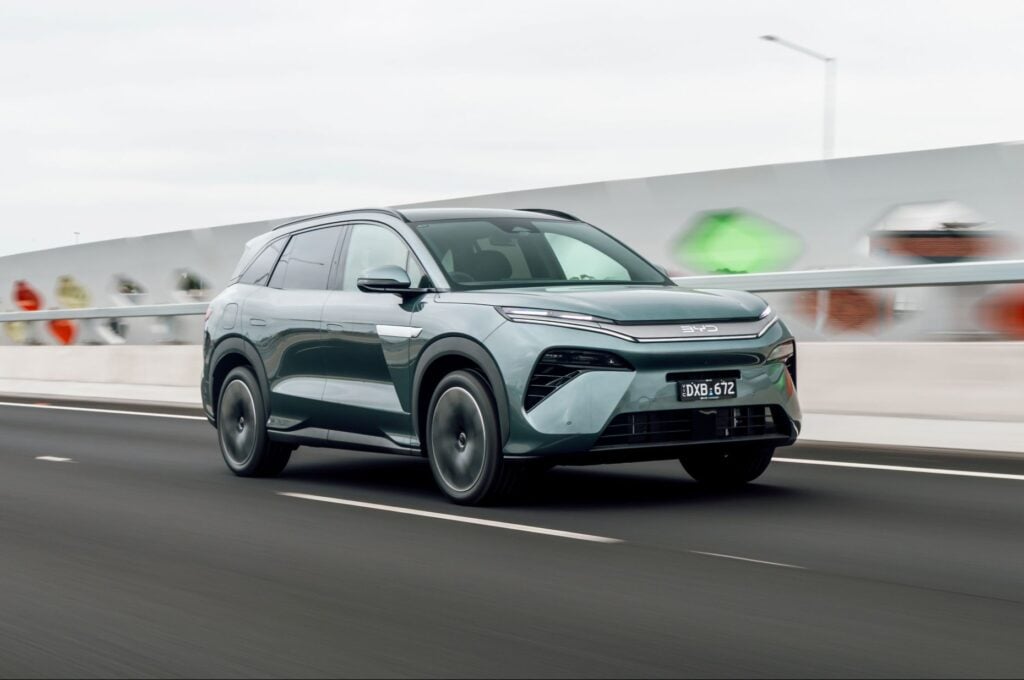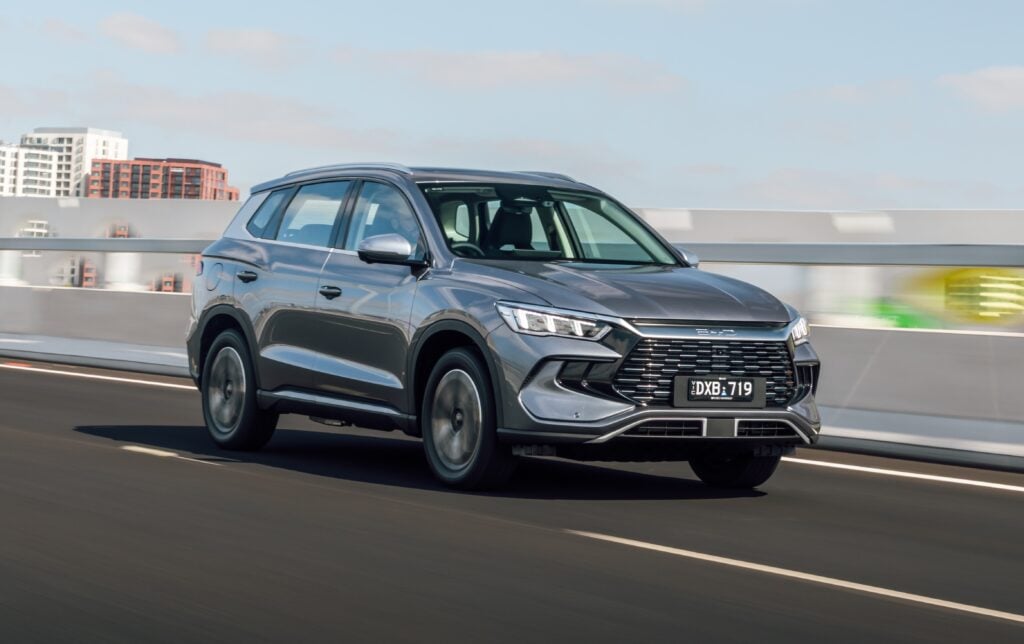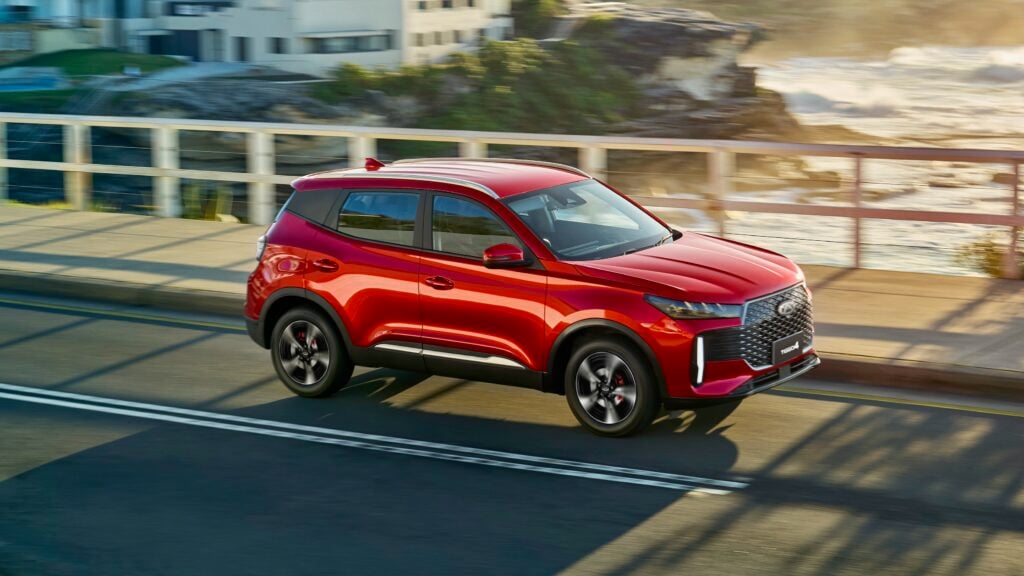Hydrogen power technology, and its green motoring prospects, have fallen by the wayside of late in the wake of lithium ion’s growing ‘alt-power’ prominence.
But fuel-cell tech is far from dead. A case in point is the A7 h-tron, Audi’s fourth generation of hydrogen-tech development. Audi’s latest zero emissions powertrain approach has turned away from more traditional liquid hydrogen methodology and towards compressed hydrogen.
And it’s no mere pipedream. During a recent trip to Ingolstadt, Audi flung us the key to one of its A7 h-tron prototypes – road-registered in its homeland – for a surprisingly brisk punt around the Deutsch countryside.
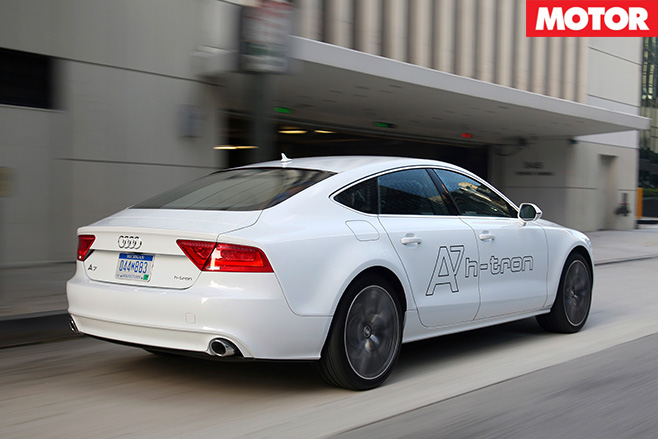
The downside? Add an 8.8kW/h battery pack and there’s an additional 300kg over a 3.0TDI quattro A7; making the h-tron almost 2000kg. The upside, though, is a nominal 170kW and 540Nm.
It gets better. There’s no transmission, just a fixed single-gear mechanism between the motors and wheels, eliminating parasitic powertrain losses. Better still, each motor can overboost up to 114kW in bursts, creating a 228kW power peak available at the wheels.
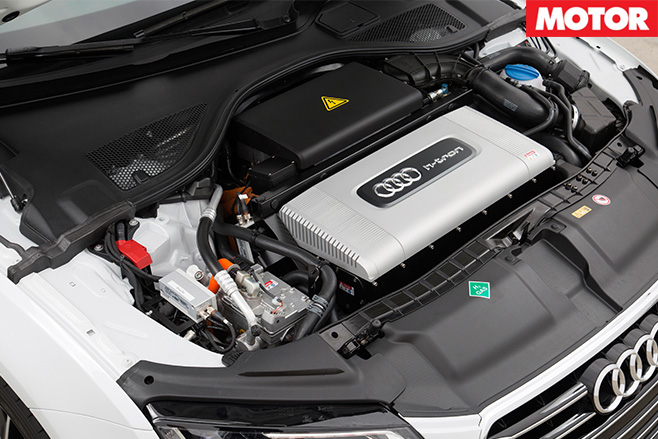
Performance? On twisty back roads there are ample herbs under foot. It’s the sort of energy you might otherwise associate with a healthy turbodiesel. But there’s no rattle on start, no engine thrum on the move.
Sonically, the Sportback is as silent as any other electric car at low speeds. And the compressor could easily be mistaken for the whoosh of a small turbocharger. Top speed, too, is a very handy 180km/h.
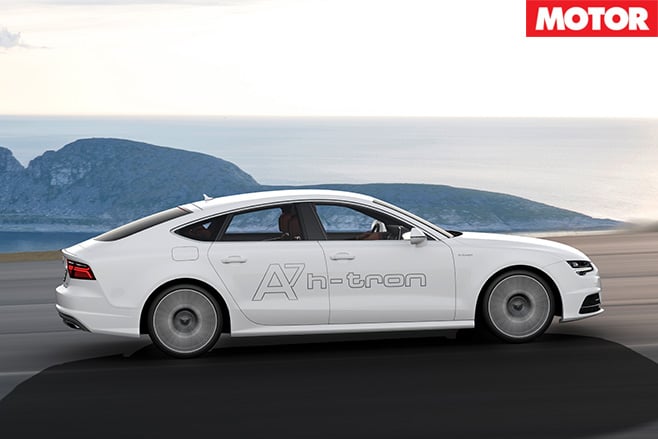
How normal is it to drive? Put it this way: if you were to guess what powertrain you were driving without prior knowledge, you’d guess it was a turbo petrol with some magical instant torque boost. Or, perhaps, a very quiet diesel. You can’t tell it’s a fuel-cell car.
And if a motoring scribe attuned to dissecting differences in powertrain feel can’t guess, the average motorist will never tell the difference. That, really, is the biggest win for the prototype that emits nothing bar water vapour from its twin tailpipes.
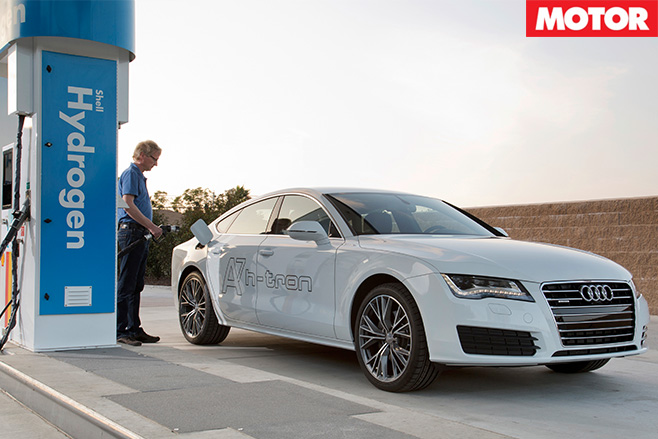
Whether there’ll be broader infrastructure in the future to support commercialised fuel-cell motoring, though, is the biggest question mark.
4 out of 5 stars
Specs Engine: 2 x electric motors Power: 170kW (228kW in overboost) Torque: 540Nm Weight 1950kg 0-100km/h: 7.9sec (claimed) Price: N/A


